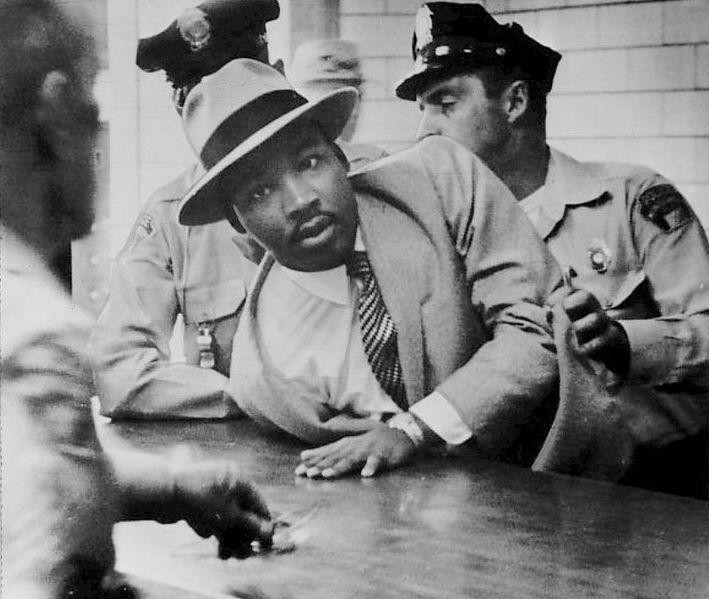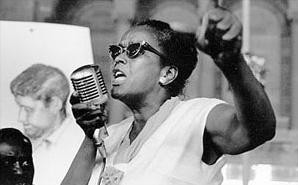The Freedom Movement
The readings for tonight explore American activism in the 1960s, particularly the fight for civil rights. As you read, consider the positions King and Baker take on civil disobedience, as well as the distinctions they make between what is moral and what is expedient. Does this remind you of any thinkers we have encountered thus far?
Dr. Martin Luther King Jr. (1929-1968) was a clergyman, scholar, activist, and leading figure in the American civil rights movement. An advocate of non-violent resistance, King led peaceful protests across the United States, including the 1955 Montgomery bus boycott, the 1963 March on Washington (where he delivered his famous “I Have a Dream” speech), and the 1963 campaigns against segregation and economic injustice in Birmingham, Alabama. It was during the Birmingham campaigns that King penned one of the pieces you will be reading, “Letter from a Birmingham Jail.” In it, King urges his fellow clergymen to take direct action against racial injustice.
Though primarily remembered for his civil rights work, King also led opposition against poverty and the Vietnam War. A powerful example of this is “Beyond Vietnam,” a speech criticizing the Vietnam War and the policies that created it. Delivered in 1967 -- a year before King’s assassination – at New York City’s Riverside Church, “Beyond Vietnam” is considered to be one of King’s most controversial speeches.

Ella Baker (1903-1986) was a civil rights and human rights activist who spent most of her organizing career in New York City. A respected mentor and organizer, Baker worked alongside W.E.B. DuBois, Thurgood Marshall, and Martin Luther King Jr. to raise money, organize meetings, and mobilize supporters. In 1960, Baker founded SNCC (Student Non-violent Coordinating Committee), one of the most important organizations to emerge from and work in the civil rights movement. Comprised mostly of student activists, SNCC had a major role in the sit-ins and ‘freedom rides’ of the 1960s, the 1963 March on Washington, and the 1964 Mississippi Freedom Summer, a project that attempted to register as many African American voters in Mississippi as possible.

"Bigger Than A Hamburger" was a speech delivered by Baker at the founding of SNCC in 1960. The title is a reference to efforts by civil rights activists to integrate lunch counters. As you read, ask yourself: what goals, according to Baker, must the civil rights movement must adopt? What type of leadership is best suited for reaching these goals?